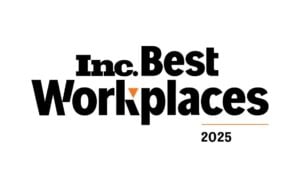On March 20, World Forum Disrupt hosted Mogul Factory: a one-day forum that brought together non-technical founders and entrepreneurs from some of today’s fastest growing companies, and the creatives and innovatives hungry to pick their brains. The speakers gave 30-minute keynotes, sharing ideas and actions that were pivotal in their success, and left attendees with actionable tactics for growing a business.
Here are six of our takeaways:
Do Everything Possible to Mitigate the Dangers of the Seed Stage
Seed stage companies are always fighting for survival. At this point, your company is vulnerable and getting your first investors is critical, but it’s harder to raise money now than it was 7-10 years ago. What’s to be done? First, focus on reverse diligence. This means performing your own due diligence to assess your company’s readiness for sales before presenting it to prospective investors/buyers. You want to be able to show investors that a market exists for your company, that you have an effective way of evaluating that market and company success, and that people are already adopting your solution. In other words: convince them that you are doing everything possible to mitigate risk. Only when you can convincingly articulate that information are you ready to approach friends and family, angel investors, syndicates, and venture capitalists and ask them for funding. As John Gossart, co-founder and COO of Goodworld, said, you must be inquisitive, vigilant, precise (frugal), and committed if you want to see your company grow.
A Startup is a House of Cards - Until It's Not
According to Jay Reno, found and CEO of Feather, timing is everything, especially if your company wants to flip consumer behavior. It’s going to take a lot of time, personal touches, and communication before your company is ready to be unleashed on the public – and before the public is ready to buy your company’s product. While you have to eventually invite others to test your product, test it yourself first. Know the ins-and-outs of what you’re trying to create before you send it into the world. Once the public says “yes,” your company moves from a house of cards to something concrete. Don’t test your house before you’re ready.
Authenticity is Intimidating but More Sustainable
People are going to associate you with your company. If you make a good impression, they’ll look at your company in a more favorable light. If you come across negatively, they might not even want to check out your company. So how should you portray yourself? Authentically. You want to make connections with people that are real and sustainable. Yes, this forces you to be vulnerable, but it’s worth it when people believe in you and in your company. Unsure how to start? Next time you’re at an event and want to talk to someone but feel flustered or nervous, remember to keep it simple: open a conversation by referencing the event, asking them how to pronounce their name, or paying them a compliment. You can always ask someone what their passion is or what they do. Those are topics anyone loves to talk about and it makes it likely you’ll be asked the same question in return, giving you a chance to bring up your company and what you’re hoping to achieve.
Build, Measure, Learn
According to a panel that consisted of Julie Alvin (Refinery29), Andy Acs (TripScout), James Fabricant (TuneMoji), and Liz Skalla (GIVN), sustainable, exponential growth comes down to three actions: build, measure, learn. First, you must build a durable asset in your marketing channel. You need to have credibility with your audience, and you need to listen to your audience. Secondly, you need to have a way to measure conversions so that you know if you’re succeeding, where you’re succeeding, and where to focus resources. Finally, you need to continue to learn, both from your audience and from influencers in your market. Understand what is valuable to them – why they’re doing what they’re doing.
Start Selling to Mid-Market/Enterprise Companies
If you’re currently making most of your sales in the SMB market, Tony Cappaert, co-founder and COO at Contactually, recommends you shift to mid-market/enterprise sales. Why? For one, the customer turnover rate is smaller. It moves from 31%-58% annually with SMB, to 11%-22% at mid-market, and 6%-10% at the enterprise level. How do you do it? Cappaert had five pieces of advice:
- Go to conferences to find your target customer
- Target your competitors’ mistakes – i.e., if a competitor messes up, convince their users that you can do a better job
- Build an outbound engine
- Keep lead quality high
- Do more sales training
Build Mini-CEOs and Founders Within an Organization
Saudia Davis, founder and CEO of Greenhouse Eco-Cleaning, discussed the biggest challenge for startups: hiring and managing people. As a business grows, the employees must grow, but how to make sure you manage successfully, and hire the right people to begin with? Davis recommended looking for four things when hiring:
- Humility
- A collaborative spirit
- People that are smart in specific areas
- People that have a point of view
As the founder of your business, take steps to implement practices that improve employees’ daily experiences. Ensure each employee has the training, the support, and the autonomy to grow as a mini-CEO and founder within the organization. If everyone has the same sense of pride and accomplishment that you do, they will work as hard as you do to see the company succeed.



